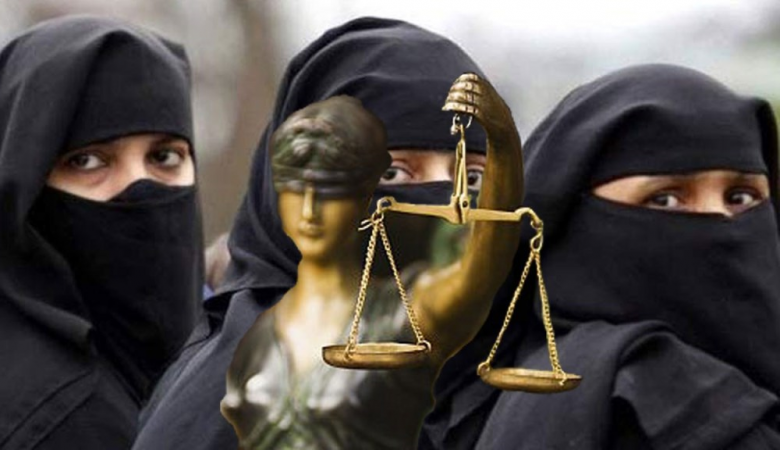Validity of Triple Talaq and Polygamy in India
April 13, 2017 | Expert Insights

On April 15th, 2017, Mohammed Haneef sent a postcard to his second wife just a week after their wedding. The second marriage was formalised with the consent of Haneef’s first wife but the relevant papers to legalise the said marriage were found to be missing. The wife complained to the Hyderabad police and Haneef was arrested. Though he was bailed out the Hyderabad police have now cancelled his bail and are pressing new charge of rape against him.
What is the Triple Talaq?
Muslim Personal Law (Shariat) Application Act, 1937, allows Indian Muslims to be governed by the Shariat. The correct procedure to finalise talaq in the Holy Quran is that talaq must be for a reasonable cause and be preceded by attempts at reconciliation between the husband and the wife by two arbiters -- one from the wife's family and the other from the husband's; if the attempts fail, talaq may be effected[1]. Further mere pronouncement of talaq by the husband or merely declaring his intentions or his act of having pronounced talaq is not sufficient and does not meet the requirements of law[2].
What is the history of the Triple Talaq in India?
The absence of codification of Muslim personal law has legally allowed community leaders to decide and judge what constitutes and governs Muslim Personal laws. The practice of triple talaq and polygamy are borrowed from the practice followed in ancient Arabia which allowed a Muslim man to wed multiple wives and initiate divorce by pronouncing the word ‘talaq’ three times. This practise has evolved over the years and 22 Islamic countries including Pakistan, Turkey, Iran and Bangladesh have banned the practise of triple talaq explicitly or implicitly. India however continues to validate the practice of triple talaq and allows a Muslim man to wed up to 4 wives. The constitutional validity of polygamy, nikah halala and triple talaq is now under question in the Supreme Court (petition filed by Shayra Bano ). All India Muslim Personal Law Board (AIMPLB) has maintained its opinion that ‘no maintenance to a divorced wife’ and ‘triple talaq as a mode to divorce wife’ are integral norms of the Muslim Personal Law. Their validity cannot be questioned as it forms part of integral religious practises protected under Article 25 of the Constitution of India.
Assessment
The case of Haneef highlights two major issues in Muslim Personal Laws – polygamy and triple talaq. Irrespective of the fact that in the present the second marriage is not considered valid (due to lack legal papers), the practise of triple talaq and polygamy are two such concepts which needs to be analysed critically. The Shayra Bano judgement can be a turning point which can change the applicability of personal laws in India. The judgement can have two outcomes. The first being that the Supreme Court maintains its earlier stand and upholds the validity of triple talaq, polygamy and nikah halala. One of the reasons for such a decision could be to avoid mass riots and religious conflict within the country (as seen in case of the aftermath of the Shah Bano judgement was passed). The second outcome is that Supreme Court adjudicates the practise of triple talaq, polygamy and Nikah Halala as constitutionally invalid. This could pave way for gender neutral laws, gender equity and justice in India. The question that needs to be answered today is whether India is finally ready for neutral personal laws or not?
[1] Shamim Ara v. State of U.P. & Anr., (2002) 7 SCC 518.
Rukia Khatun v. Abdul Khalique Laskar, (1981) 1 GLR 375.
[2] Dagdu s/o Chotu Pathan, Latur v. Rahimbi Dagdu Pathan, 2002 (3) Mh LJ 602.








Comments